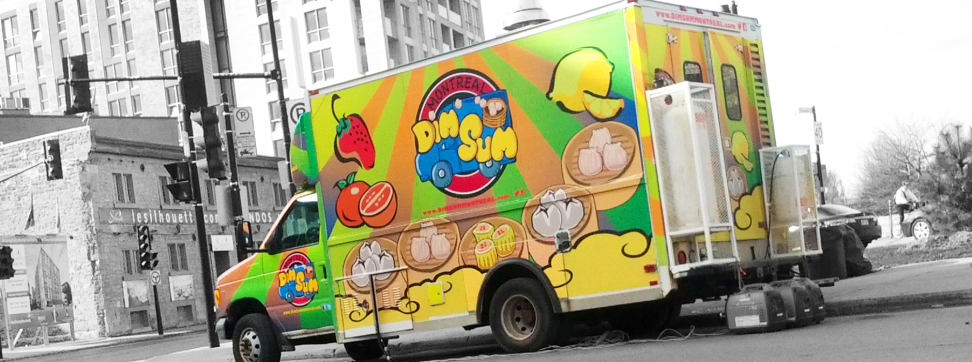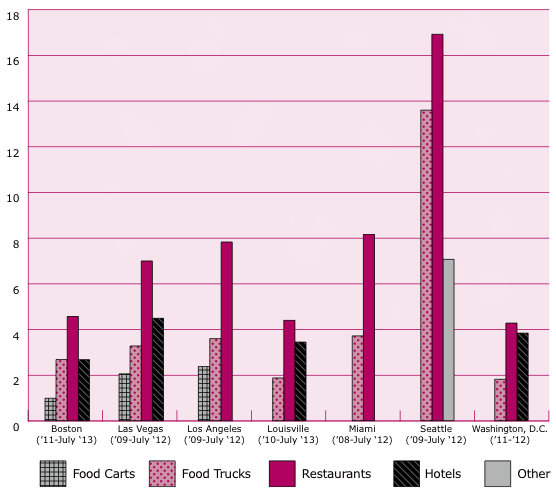Study: Food Trucks Safer Than Restaurants
There's no need to feel queasy about getting your food from a truck.
 Credit:
Credit:
Products are chosen independently by our editors. Purchases made through our links may earn us a commission.
Food trucks are more popular than ever. Need proof? Look no further than Jon Favreau's passion project, Chef, in theaters this summer.
In Reviewed.com's hometown of Boston, food trucks are known to deliver high-quality eats to locations as diverse as beaches, parks, and winter warehouse parties. They’re awesome, and a new study suggests that they are—on average, and perhaps counter-intuitively—safer than restaurants.
Researchers at the Institute for Justice, a public interest law firm in Virginia, surveyed more than 260,000 food inspection reports in seven U.S. cities—Boston, Las Vegas, Los Angeles, Louisville, Miami, Seattle, and Washington, D.C.—to discover trends in food safety. For fairness' sake, the study was limited to cities where food trucks and restaurants have to follow the same rules and health guidelines.

Average number of food safety violations by category of food service.
While controlling for certain biases like traffic, weather, and time of year, the study concludes that food trucks are statistically just as safe and sanitary as restaurants, and in some cases more so. The libertarian-leaning Institute is also quick to argue that routine inspections are to credit for improving heath standards among food truck vendors, not tougher regulations.
“More burdensome regulations proposed in the name of food safety, such as outright bans and limits on when and where mobile vendors may work, do not make street food safer—they just make it harder to get,” the Institute states.
Vox speculates that the growing popularity of food trucks has led to heightened scrutiny on food preparation processes, thereby reducing the number of violations. It’s also true that food trucks by necessity have smaller, simpler kitchens than restaurants—ones that are clearly visible to customers. That might incentivize operators to maintain more presentable cooking spaces.
Despite their strong showing the study, food trucks are still a favorite target for regulators, who are increasingly concerned about the spread of food-borne illnesses. A recent study by the Centers for Disease Control and Prevention found the overall rate of food poisoning in the U.S. has held steady in recent years, but some cases—such as vibrio bacterial infections—have actually become more common.
In combating the issue, some researchers have embraced unconventional methods of tracing the spread of food-borne pathogens. In New York City, health department officials analyzed hundreds of thousands of Yelp reviews to find the sources of repeated food poisoning cases. And in April, Twitter released data grants to two research institutions who plan to use the information in a similar manner.
Hero Image: Wikimedia Commons user "Gates of Ale" (CC BY-SA 3.0)
